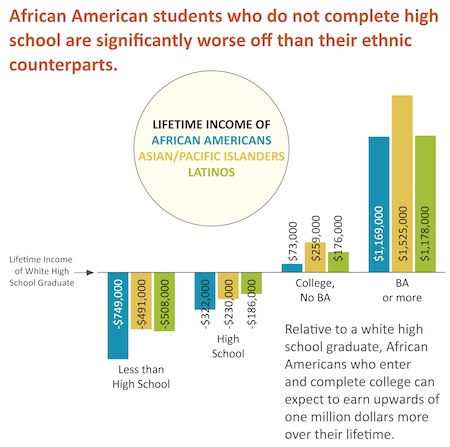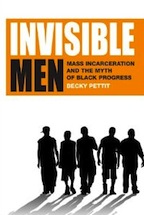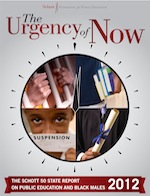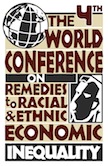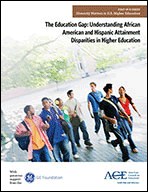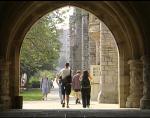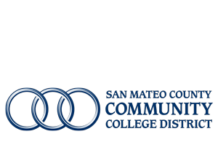Princeton University Study Examines Link Between Socioeconomic Factors and Life Expectancy
Author Michael Geruso concludes that 80 percent of the life expectancy gap between Black men and White men is due to socioeconomic differences.
Is the National African American Spelling Bee a Good Idea?
A new event offers many young African American students the opportunity to compete on a national level in spelling competitions.
Schott Foundation Report Finds Vast Racial Inequities in New York City Public Schools
Black students are four times as likely as Asian or White students to be enrolled in the poorest performing schools.
Study Finds a Narrowing of the Digital Divide
While broadband access to the Internet among Blacks has increased, much of the gain appears to be from an increased use of smartphones by African Americans.
The Changing Demographics of the Student Body of the City University of New York
Since 2001, the percentage of Black students in the entering classes at the five most prestigious campuses of the City University of New York has decreased from 17 percent to 10 percent.
University Study Finds That Exercise Alone Does Little to Prevent Obesity Among Black Girls
Official U.S. government data finds that 39 percent of adult African American women are obese. But new research finds that exercise alone may not be adequate to reduce rates of obesity.
Television Viewing Can Negatively Impact the Self-Esteem of Young African Americans
The results found that for Black and White girls and young Black males, their self esteem was lower the more they watched television. But for White males who watched a lot of television, their self-esteem increased.
Widening Racial Wealth Gap Threatens the Ability of African Americans to Pay for College
According to the Federal Reserve, between 2007 and 2010, nonwhite and Hispanic families saw their median net worth dropped from $29,700 to $20,400. This is a decline of 31.3 percent.
A College Education Provides Major Economic Benefits for Blacks in California
The report found that lifetime earnings for African Americans with a four-year college degree in California have grown 85 percent, after adjusting for inflation, over the past 30 years.
The Myth of Black Economic Progress
All the statistics on income, education, and employment exclude the large number of Americans who are incarcerated in prisons and jails, a population that is disproportionately Black.
A Large Racial Gap Persists in Faculty Posts in American Higher Education
The racial gap is especially pronounced at the full professor level where only 3.4 percent of all posts are held by Blacks.
No Progress in Closing the Racial Gap in ACT Test Scores
The ACT data shows that only 5 percent of Black ACT test takers met the organization's college readiness standards in all four major subject areas.
Census Bureau Reports a Widening of the Racial Income and Poverty Gaps
In 2011, the average Black household in the United State had an income that was only 58 percent of the average non-Hispanic White household.
New Report Documents a Crisis in Black Male High School Graduation Rates
While Black males have made significant gains, a Schott Foundation study finds there is a persisting large racial gap in four-year high school graduation rates.
University of Minnesota Hosting a Conference on Global Racial Inequality
The fourth World Conference on Remedies to Racial and Ethnic Economic will be held in Minneapolis on October 11-13.
Checking the Progress of Black Faculty at the University of Missouri
The flagship campus of the University of Missouri at Columbia reports that in 2011 there were 51 Black faculty members on campus. This was one fewer than in 2006.
Addressing the Racial Divide in STEM Education
The data suggests that attracting Black students to STEM fields is not the problem but keeping them there is a major concern.
The State of Florida Sets Educational Goals by Race
The state set a goal that 88 percent of White students and 74 percent of Black students meet or exceed grade-level reading standards by 2018.
ACE Program Seeks to Increase the Number of Minority College Presidents
The American Council on Education's Spectrum Executive Leadership Program is an initiative that has the goal of making the leadership of higher education more representative of the people it serves.
African Americans Are Slowly Closing the Gap in Medical School Enrollments
But a racial gap remains. African Americans make up 13 percent of the U.S. population but are only 7.3 percent of all first-time enrollees at U.S. medical schools.
New Data Shows a Wide Racial Disparity in the GPAs of College Graduates
Whites were more than twice as likely as Blacks to graduate with grade point averages better than 3.5. Blacks were nearly three times as likely as Whites to graduate with a GPA of less than 2.5.
Blacks Take Far Longer Than Whites to Earn Their Bachelor’s Degrees
For those who earned a bachelor's degree in the 2007-08 academic year, the average amount of time for Blacks to earn their degree was 98 months compared to 73.3 months for Whites. Nearly a quarter of Blacks took more than a decade to earn their bachelor's degree.
University Study Finds That the Racial Gap in Fatal Coronary Disease Is Widening
The research, conducted at the University of Alabama Birmingham, shows that despite a steady decline in fatal coronary heart disease for all groups, since 2000, the racial gap has actually increased.
New Report Looks to Explain the Racial Gap in College Graduation Rates
A new report from the American Council on Education examines why Black and Hispanic students have significantly lower rates of degree attainment than other students at U.S. colleges and universities.
Black First-Year Students at the Nation’s Leading Research Universities
For the sixth year in a row, Columbia University in New York City has the highest percentage of Black first-year students among the 30 highest-ranking universities in the nation.
A Check-Up on Black Progress in Nursing Degree Programs
According to data from the American Association of Colleges of Nursing, Black have made tremendous progress over the past decade in increasing their percentage of students in bachelor's, master's, and doctoral degree programs in nursing.
A Significant Racial Gap in Academic Preparation for a College-Level Curriculum
New information from the U.S. Department of Education shows that during the 2007-08 academic year, 30.2 percent of all first-year African American college students took remedial courses compared to 19.9 percent of first-year White students.
Good News! More Than 5 Million African Americans Now Hold College Degrees
For Blacks over the age of 25 in 2012, 21.2 percent held a college degree. This is an increase from 19.9 percent in 2011. For Whites over the age of 25 in 2012, 34.5 percent held a college degree, up from 34.0 percent in 2011.
Black Participation in the AP Program Soars, But a Large Racial Scoring Gap Persists
Blacks made up 14.5 percent of the graduating Class of 2012 but were 9.2 percent of all AP test takers and only 4.4 percent of all students who successfully completed an AP examination.
Federal Commission Finds Vast Inequities in U.S. Educational System
The report of the U.S. Equity and Excellence Commission found that the achievement gap between children from high-income and low-income families is significantly wider for children who were born in 2001 than for children born 25 years earlier.
New Report Shows That Blacks Are Doing Poorly in Los Angeles County Schools
The report concludes that "if current trends continue, only 1 in 20 of today’s African-American kindergartners will go on to graduate from high school and complete a degree at a four-year California university."
Brandeis University Study Analyzes the Large and Growing Racial Wealth Gap
The racial wealth gap has tremendous consequences in the ability of African Americans to afford higher education. The report finds that in 2009 the median net worth of White households was $265,000. For Black households, the figure was $28,500.
Study Examines Racial Differences in Divorce Rates for Highly Educated Women
A new study by an assistant professor in the School of Social Work at Rutgers University in New Brunswick, New Jersey, finds that highly educated Black women are not as sheltered from divorce compared to highly educated women of other racial and ethnic groups.
The Gender Gap in African American Medical School Enrollments
Nationwide, women make up 47.2 percent of all medical school students in the United States. But for African Americans, the gender gap is significantly in favor of women.
Study Finds That Outdoor Education Can Close the Racial Gap in Environmental Literacy
When middle school students were taken outdoors to learn about environmental science, they were more likely to perform better academically in the subject compared to their white peers than in cases when all students remained in the classroom for instruction.
Duke’s Efforts to Diversify Its Faculty Over the Past Quarter-Century
From 1993 to today the number of Blacks teaching at Duke University in Durham, North Carolina, has increased from 44 to 138. Today, Blacks are 4.25 percent of the university's total faculty.








